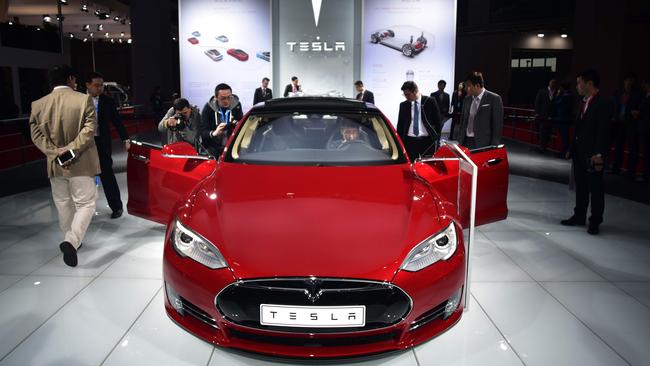Tesla: is there more to Elon Musk than cars?
It’s time to pump the brakes on the hype over electric cars, autonomous driving and Tesla’s improbable ambitions.

You probably have figured it out by now, but let me state it anyway. Ten years from now, if you’re reading this paper in a driverless car, it will be on a limited-access highway or a closed-off, experimental city circuit.
You will not be thumbing through your text messages in a driverless car capable of carrying you anywhere, at all hours, in all weather conditions, over all kinds of roads.
And even so, you will be expected to take over driving at a moment’s notice. Ditto electric cars. If you own an electric car, you will be a member of a still-small minority. Electric-car owners will be people who own multiple cars or otherwise are willing to settle for a car with limited utility, suited for a daily commute but not a family trip or a long weekend. Even so, a new phenomenon will become apparent. After unexpected tie-ups on the interstate, tow trucks will routinely have to come and remove three or four Teslas that risked a long-distance trip and ran out of juice.
All this we offer as a discordant note amid the hype for electric cars and autonomous driving.
Last week the market value of Tesla surpassed that of Ford and General Motors. Tesla is now the most valuable homegrown American car company, worth almost $US52 billion ($69bn).Yet in the same week a reputable consultancy, Navigant Research, showed that Ford and GM lead all others, including Tesla and Google, in the autonomous car race. Shocking? Not really. These companies are making and selling cars, while the Silicon Valleyites have been mostly engaged in brand-building exercises based on public fascination with jazzy, futuristic auto technology.
Google, the pioneer of self-driving hype, recently admitted it won’t build and sell a car after all. Google, though, still finds it pays to trundle its handful of robot cars on the exquisitely mapped streets of a few locales in perfect weather as obstacles to other motorists.
Apple reaped untold millions in free publicity based mainly on rumours and job postings for automotive engineers. Uber briefly suspended its own self-driving taxi experiment in three cities after an accident last month. Uber customers knew they were in a driverless car, by the way, because it had two drivers instead of one.
The Wall Street Journal reported this week that Tesla’s triumph in the market-cap sweepstakes “underscores the profound change occurring in the global automotive industry as Silicon Valley pursues a vision for transportation ... that could up-end century-old competitors.”
Except that the stock prices of traditional car makers haven’t exactly been tanking. GM’s remains within yelling distance of its postbankruptcy high. Look at BMW, whose market cap Tesla nearly equals.
Even if Tesla succeeds in its high-risk plan to ramp up annual production to 500,000 from 80,000 in a scant two years, it will sell a quarter as many luxury cars as BMW does, and has yet to show it can do so profitably.
The stock market may or may not be crazy, but some who interpret Tesla’s stock price are crazy. To justify its current valuation, Tesla needs a business that’s more profitable than the car business.
To state the manner plainly, the car business just doesn’t generate the kinds of returns Tesla investors are anticipating.
Its visionary founder, Elon Musk, has shown that swells will buy electric cars for noneconomic reasons, but not that swells will reward him with profits. He has discreetly cozied up to Donald Trump, whose loosening of fuel-mileage rules will actually benefit Tesla by giving other companies less motive to build and sell electric cars at a loss.
He also has been waging a campaign against California’s Air Resources Board, saying the state gives GM, etc too much incentive to build electric cars rather than buy zero-emission credits from Tesla.
Mr Musk has created a recognisable, compelling brand in Tesla, but selling cars into a crowded, competitive marketplace will never supply the Silicon Valley-like profit margins he needs. Read the analyst reports of his cheerleaders on Wall Street. One way or another, they think Mr Musk is building an Apple, not a car company.
What product might eventually justify their faith? Who knows?
Mr Musk has dropped “Motors” from his company’s name. Maybe batteries from his gigafactory will become a near-monopoly standard the way Intel chips did during the personal-computer explosion.
Maybe “Tesla Inside” will be found on every kind of large and small electronic device.
Forget the General Motors comparison. Tesla’s market cap is barely twice that of Snapchat’s parent, a company even more bereft of revenues, never mind profits.
Tesla bulls are betting on Mr Musk, not on the car business. They are betting on some wildly profitable, Apple-like future that they can’t even clearly define.
The Wall Street Journal



To join the conversation, please log in. Don't have an account? Register
Join the conversation, you are commenting as Logout